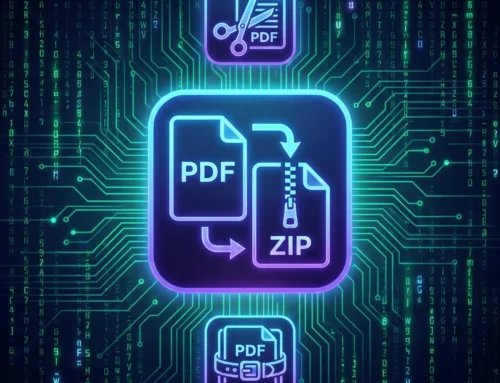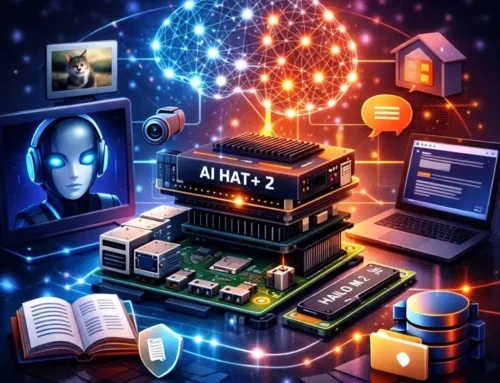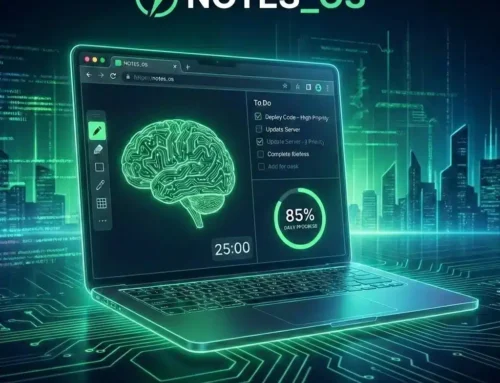
Approx. read time: 7.1 min.
Post: Li Auto paid interviews: 7 Lessons for Compliance Success
Li Auto Paid Interviews: What Happened & Compliance Lessons
📚 At-a-glance summary
-
What happened: Li Auto fired two employees after a string of paid interviews with brokerages that were not approved and allegedly leaked trade secrets. The company clawed back profits and revoked stock options, and said it may pursue legal liability against external parties. CnEVPost
-
Who else: Just two months earlier, Xiaomi dismissed three staffers in its auto division for unauthorized meetings with investment institutions that spread false information. CnEVPost
-
Why this matters: China has toughened trade-secret protections (2019 amendment; 2025 AUCL revision effective Oct 15, 2025), raising the stakes for leaks and paid “consulting” chats. Covington & Burling+2National Law Review+2
-
Takeaway: Companies need clear approval rules, training, and monitoring for any external research interactions.
🧭 What happened at Li Auto?
From November 2022 to January 2024, two Li Auto employees (identified by surnames Wang and Fang) took paid interviews with outside brokerage firms without company approval—despite having signed confidentiality agreements. Li Auto stated these talks led to the leak of trade secrets and had “serious consequences.” CnEVPost
🛑 The penalties Li Auto imposed
Li Auto terminated both employees, recovered the improper gains, and withdrew vested and unvested stock options tied to them. In its statement, the company also reiterated a zero-tolerance stance on trade-secret violations. CnEVPost
⚖️ Legal threat to outsiders
Beyond internal discipline, Li Auto said it reserves the right to pursue legal liability against the brokerage firms and investment institutions involved—an unusually direct warning to external research channels. CnEVPost-Li Auto paid interviews
🧩 Why this case drew attention
The Li Auto action was notable because it came two months after a similar move by Xiaomi, making Li Auto the second high-profile Chinese firm in a short span to publicly clamp down on paid, unsanctioned information exchanges. CnEVPost
🚗 Xiaomi’s parallel crackdown
In December 2023, Xiaomi fired three employees in its automotive unit for attending unauthorized seminars/meetings with investment institutions to collect consulting fees. Xiaomi said the employees spread false or misleading information, disrupting its auto business, and added that violators would be held legally responsible. CnEVPost – policies supporting the ev sector
(Independent coverage also referenced the related leak probe and accountability for media workers tied to Xiaomi Auto content.) Yicai Global
🔐 What rules were broken?
At a company-policy level, these interviews bypassed approval and breached confidentiality obligations. Li Auto explicitly prohibits current and former employees—and partners under NDA—from disclosing trade secrets. Violating such rules risks disciplinary action, clawbacks, and legal exposure for all parties involved. CnEVPost
🏛️ The legal backdrop: China’s trade-secret protections (2019 → 2025)
China’s Anti-Unfair Competition Law (AUCL) has steadily increased trade-secret protection:
-
2019 amendment: Introduced burden-of-proof shifting and punitive damages (up to 5×) for malicious infringement—materially strengthening right-holders’ hands. Covington & Burling
-
2025 revision (effective Oct 15, 2025): The NPC Standing Committee approved a major update that enhances safeguards for trade secrets and broadens the law to address digital-economy conduct and unfair practices—raising penalties and expectations for compliance. National Law Review+1
What that means: Internal leaks via “consulting” chats, expert-network calls, or paid broker conversations can more easily trigger civil liability, steeper damages, and potential criminal exposure if conduct crosses legal lines.
🧠 How “paid interviews” become risky
Paid “chats” feel informal, but they create pressure to “share something useful.” That can nudge staff into:
-
Nonpublic performance details (orders, cancellations, product issues).
-
Forward-looking metrics or unannounced partnerships.
-
Sensitive artifacts (internal photos, docs, dashboards).
If such details qualify as trade secrets or material nonpublic information (MNPI), the conversation can harm the company and invite liability.
🧭 For employees: a quick decision tree
Before any external “research” call:
-
Is it approved? If your policy requires written clearance, stop until you have it.
-
Is the host vetted? Expert networks with strict compliance screens are safer than ad-hoc chats.
-
Is your topic public? If it isn’t already disclosed in official channels, don’t discuss it.
-
Could this move a market? If yes, it is off-limits.
-
When in doubt: Decline, escalate to Legal/IR/Compliance.
🧰 7-point compliance checklist for companies
-
Bright-line approval rule: Any broker/investor/media interaction must be pre-cleared in writing.
-
Speaker registry: Maintain a central list of authorized spokespeople and approved topics.
-
Training cadence: Annual trade-secret and MNPI refreshers, plus new-hire onboarding.
-
Scripts & guardrails: Provide Q&A scripts, “no-go” lists, and red-flag examples.
-
Audit & monitoring: Log all external requests and paid calls; sample-review recordings when possible.
-
Clawbacks in equity plans: Explicitly permit option/bonus clawbacks for leaks or confidentiality violations.
-
Third-party letters: Issue do-not-solicit notices to known brokerages/expert networks that bypass approvals.
🧪 Mini-timeline: the Li Auto case
-
Nov 2022 – Jan 2024: A series of paid interviews by two employees with outside brokerages took place without approval. CnEVPost
-
Feb 23, 2024: Li Auto announces terminations, profit recovery, and stock-option withdrawal; reiterates zero tolerance and signals potential legal action toward third parties. CnEVPost – Li Auto paid interviews
🧩 Investor & analyst view: reading the signals
For the buy-side and sell-side, these actions suggest:
-
Tighter channels: Expect more IR centralization and fewer off-the-record chats.
-
Higher friction: Vendor-diligence on expert networks will matter more.
-
Disclosure premium: Companies that invest in robust public disclosures reduce leak incentives and level the field.
🧑⚖️ For brokerages & funds: safer research habits
-
Prefer compliance-managed expert networks with pre-cleared topics.
-
Demand written confirmation that the speaker is authorized and will not share MNPI/trade secrets.
-
Record a compliance preamble at the start of calls.
-
Pay for synthesis, not secrets—reward public-domain analysis, not nonpublic data points.
🌐 Why this trend will persist
With stronger AUCL provisions now on the books and punitive damages available under the 2019 changes, firms have both the legal tools and the incentives to make examples of leak cases. Expect more clawbacks, public terminations, and letters to third parties when boundaries are crossed. Covington & Burling+1
❓ FAQs – Li Auto paid interviews
1) What exactly were the “Li Auto paid interviews”?
They were paid discussions two employees held with brokerage firms without company approval, during which trade secrets were allegedly leaked. CnEVPost
2) What penalties did Li Auto impose?
Termination, clawback of improper gains, and withdrawal of vested/unvested stock options; the company also kept open the option to pursue legal liability against outside parties. CnEVPost
3) How is Xiaomi’s case similar or different?
Similar: Unauthorized contact with investment institutions and subsequent dismissals. Different: Xiaomi emphasized the spread of false/misleading information tied to paid seminars, not just secrecy breaches. CnEVPost
4) Which Chinese law covers trade-secret leaks?
The Anti-Unfair Competition Law (AUCL)—bolstered in 2019 and revised in 2025—provides civil remedies and higher penalties, including punitive damages for malicious infringement. Covington & Burling+1
5) Does “former employee” status protect someone?
No. Li Auto’s statement bars current and former employees and bound partners from disclosing trade secrets. CnEVPost
6) Are paid expert-network calls always risky?
They’re safer only when pre-cleared, tightly scoped, and run through compliance. The risk rises when payment pressures nudge nonpublic disclosure.
7) Can a company really claw back vested options?
If plan documents and local law allow, yes. Li Auto explicitly said it withdrew vested and unvested options in this case. CnEVPost
8) What should employees do if approached for a paid chat?
Decline politely and forward the request to IR/Legal/Compliance for official handling.
🔗 Sources & further reading
-
Li Auto statement & actions (terminations, clawbacks, legal-liability warning; timeline Nov 2022–Jan 2024). CnEVPost
-
Xiaomi dismissals in auto division for unauthorized meetings/false information. CnEVPost
-
Additional Xiaomi coverage on leak probes and accountability. Yicai Global
-
2019 AUCL amendment (punitive damages, burden-of-proof shifts for trade secrets). Covington & Burling
-
2025 AUCL revision (effective Oct 15, 2025; enhanced protection and penalties). National Law Review+1
✅ Conclusion & CTA
The Li Auto paid interviews episode underscores a wider shift: Chinese firms are raising the cost of leaks and tightening controls around external research. With Xiaomi already taking similar action and the AUCL now even stronger, the compliance bar is higher for everyone—employees, expert networks, and investors alike. If you need help auditing policies, training staff, or putting a speaker-approval system in place, open a ticket with our Helpdesk and we’ll share an editable 7-point rollout plan.










